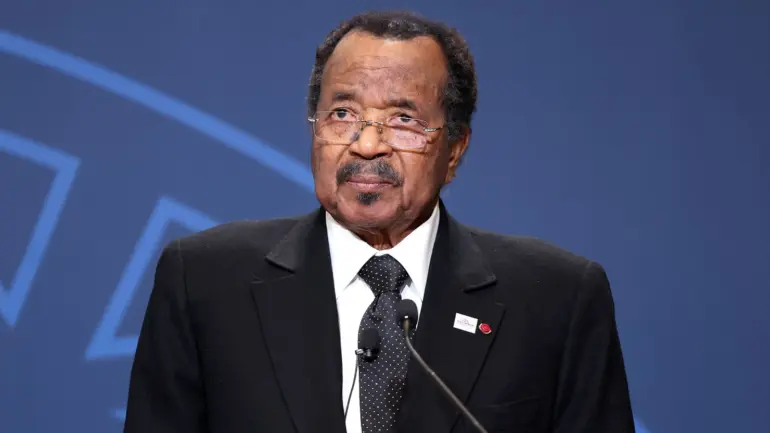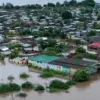Cameroon’s long-serving president, Paul Biya, is widely expected to secure an eighth term in Sunday’s presidential election, despite growing concerns over his age, health, and the fairness of the vote.
At 92, Biya is already the world’s oldest head of state and has ruled the central African nation since 1982. Most of the 7.8 million eligible voters have never known another leader. If re-elected, Biya would be nearly 100 by the end of his next term.
The opposition, though fielding 11 candidates, remains fractured and largely ineffective. Its most prominent figure, Maurice Kamto—who came second in 2018—was barred from contesting by the courts, dealing a heavy blow to any serious challenge to Biya’s grip on power.
“The idea that APC is untouchable in Lagos is simply not true,” said Doherty. “In the last presidential election, APC lost Lagos. That’s a fact.”
Public sentiment is mixed. While some young voters, like 24-year-old artist Theophile in Douala, called the election a “scam” and lamented Kamto’s exclusion, others still support Biya, citing his experience. “He’s a wise man with a long track record,” said Giovanni, a 20-year-old student.
Biya has remained mostly absent from the campaign trail, recently travelling to Switzerland—his frequent foreign retreat—stirring renewed speculation about his health. However, he made a rare appearance Tuesday at a rally in Maroua, a key battleground in the Far North, where he told a sparse crowd, “My determination to serve you remains intact.”
His appearance, the first since May, drew far fewer than the 25,000 expected. AFP reporters estimated only a few hundred attendees.
Biya first became president in 1982 after the sudden resignation of his predecessor, Ahmadou Ahidjo. He was elected unopposed in 1984, winning 100% of the vote. Since the advent of multi-party democracy, he has maintained power through a mix of repression, co-opting rivals, and managing regional alliances.
His re-election margins remain high: 93% in 1997, 71% in both 2004 and 2018, and 78% in 2011.
Rights groups have long decried Cameroon’s electoral process as deeply flawed. “This election is unlikely to bring change—it will only reinforce the status quo,” said David Kiwuwa, head of International Studies at Nottingham University’s China campus.
Cameroon also faces deep economic challenges. According to the World Bank, four in ten Cameroonians lived in poverty in 2024. Citizens continue to voice frustration over rising living costs, poor infrastructure, and inadequate access to clean water, quality healthcare, and education.
“I dream of a better Cameroon, where young people have jobs and safe roads,” said Boris, a computer engineer in Buea.
Despite the widespread discontent, protests remain rare. However, civil society groups are mobilizing to monitor the vote, forming independent ballot-counting networks to “protect the vote.” The government has dismissed these efforts as attempts to “manipulate public opinion.”
The election also takes place under the shadow of ongoing conflict in Cameroon’s English-speaking regions, where separatist unrest has dampened voter turnout in past elections. In 2018, participation was particularly low in the anglophone areas hardest hit by the violence.
AFP


